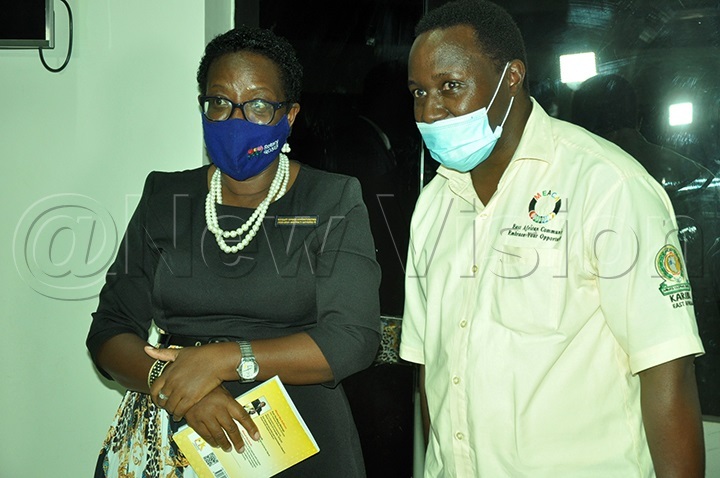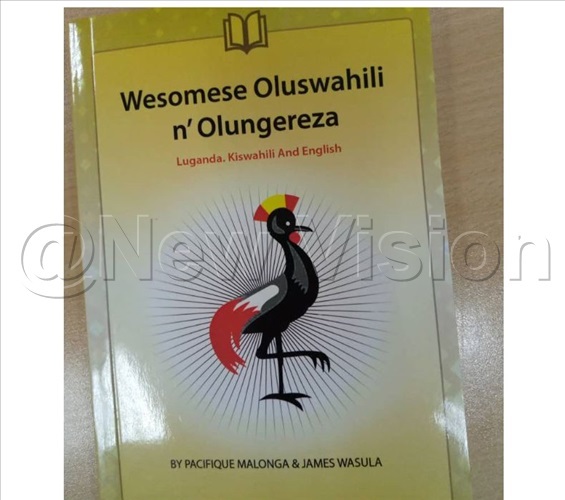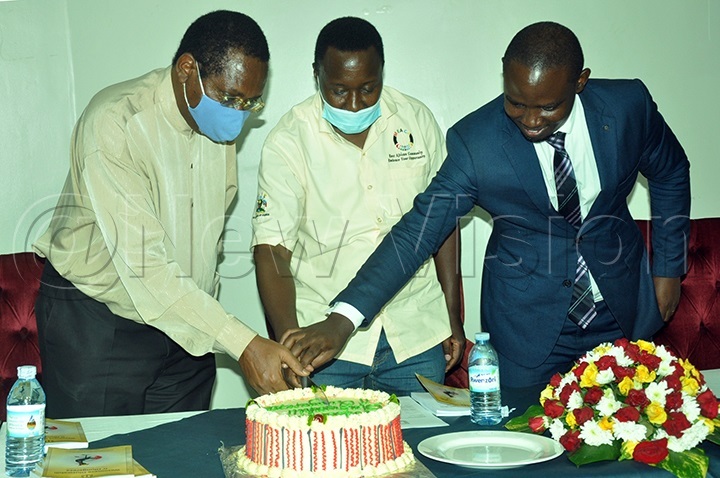A new book launched to promote the use of Kiswahili
According to Frank Kabushenga, the book publisher, when focusing on East Africa, Kiswahili is the most important language of communication and trade that everyone needs.
When James Wasula was young, the first Kiswahili word he learnt was kwanza (first), but he thought it was an abusive word.
He was playing with the late Ssuna a brother to the King of Buganda Mwenda Mutebi II. "I somehow hurt him, and he said Kwanza."
"I started crying and reported him for abusing me. From that point onwards I began to use the word as an abuse. It was later on that I discovered it was not an abusive word yet we used it a lot."
The discovery inspired me to learn Kiswahili, disclosed Wasula the co-author of the newly launched tripartite book titled Wesomese Oluswahili n' Olungereza to be used to promote the use of Kiswahili in central Uganda.
"Also, during Obote II reign moving in Kampala at 4:00pm was high risk. We were running home with friends and bullets started flying along kabaka anjagala road in Mengo and we bumped into soldiers."

"One of my friends who was working with radio Uganda then out of fear started farting. Terrified, he was asked by a soldier in Kiswahili wewe, kwa nini unapita (you, why are you farting?) his answer was Yes sir! Which left the soldier amused and he released us to go. We had a lucky escape."
"But out of this experience too, I said I must learn this language."
When Wasula bumped into Prof. Pacifique Malonga (his co-author) in one of the intellectual property meetings they shared a vision.
"We said, look we are building the East African Community (EAC), there is going to be a lot of cross border trading, we must learn languages around us."
"Being a Muganda I know very well that Kiswahili is a no go area in Buganda, we believe that this language is oppressive."
"When soldiers came to your house it was wewe fungua (you open), wewe kaa chini (you, sit down) it was just bad language and it has a bad history in Buganda."
"But I thought we should bring back this language home and say, look it was people who misused the language the language is not bad," he said.
Wasula emphasised Kiswahili is not a bad language.

"It was the people who were using the language who were bad," said Wasula who co-authored the book with Prof. Pacifique Malonga.
"In this book, we are talking to Luganda speakers, from the English side you can also learn Kiswahili and the Luganda language (spoken in central Uganda), and from Kiswahili, you can also learn Luganda and English."
"It's a tripartite book. We have written the book in a way that we are presenting Kiswahili as another good language."
"We have used words that are friendly and avoided offensive words because we know in Buganda region Kiswahili is resurgent to its people."
"The language we have used in the book is going to heal the history of the language in Buganda so that the language is perceived as a good language and the users were the bad people not the language," said Wasula at the book launch on Friday, November 27, 2020 in Kampala.
According to Frank Kabushenga, the book publisher, when focusing on East Africa, Kiswahili is the most important language of communication and trade that everyone needs.
"If you know Kiswahili you are able to cross many borders, and you will also get to have many opportunities. The more languages you know the more opportunities you will have your way."
"Every student, leader, and Ugandan needs this book to be able to add one additional language to your docket."
"You will have better trade/business, better relations, you will have a stronger foundation for you to be able to progress, and that's the power of language which is a great key to many unfathomed opportunities," said Kabushenga.
Kiswahili is spoken widely in the larger Eastern Africa region as a lingua franca (a language used between people who don't speak one another's native language).
It's a national language in Kenya, Uganda, and Tanzania, and an official language of the East African Community, which comprises Kenya, Uganda, Tanzania, Rwanda, Burundi and South Sudan. It is also an official language of the African Union.
Kiswahili originated in East Africa's coast as a result of intermarriage between Bantu-speaking communities, and Arabs who arrived at the coast from as early as before the 10th Century, AD.

The language then spread into the interior through trade, Christian activities including missionary work, and exploration activities in the East African mainland.
The use of Kiswahili is currently fast spreading to southern, western, and northern Africa.
According to estimates, there are about 150 million Kiswahili speakers across the world, including about 16 million people throughout the world who speak a dialect of Kiswahili as a native language, and about 82 million speakers of Kiswahili as a second language.